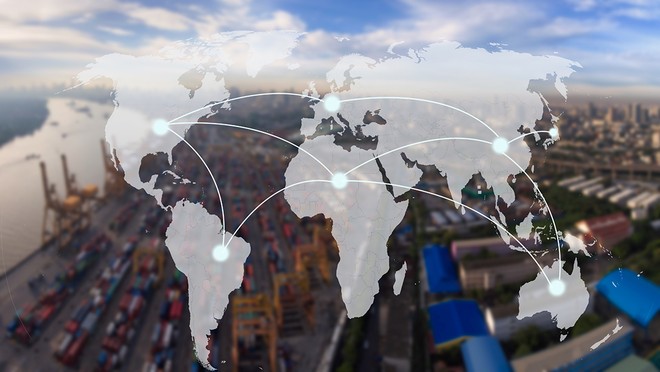According to analysts, many risks are surrounding the world economy and countries are “holding their breath” waiting for the Trump administration’s tariff decisions.
US tariffs affect many countries
The Trump administration has released an encyclopedic list of foreign countries’ policies and regulations that it considers barriers to trade, ahead of his proposed reciprocal tariffs on global trading partners.
The Office of the U.S. Trade Representative’s annual national trade estimate report on foreign trade barriers lists average tariffs applied to trading partner countries and non-tariff barriers, ranging from stringent food safety regulations to renewable energy requirements and government procurement rules.
Mr Trump’s retaliatory tariffs, expected to be announced on April 2, are aimed at balancing other countries’ higher tariffs on certain goods and offsetting non-tariff barriers that disadvantage US exports.
Last week, Mr. Trump announced a 25% tariff on imported cars from the United States, aimed at rebuilding production in the United States but threatening to cause a new price shock.
“No U.S. president in modern history has recognized the profound and harmful foreign trade barriers facing American exporters more than President Trump,” U.S. Trade Representative Jamieson Greer said in a statement.
At the same time, Greer added: “Under President Trump’s leadership, this administration is working hard to address these unfair and reciprocal practices, helping to restore fairness and put hardworking American businesses and workers first in the global marketplace.”
In addition, White House trade adviser Peter Navarro frequently complains that value-added taxes collected by European Union countries act as additional tariffs and export subsidies when refunded on cars exported to the United States.
The USTR report listed VAT and its implementation as burdensome on US imports in several other countries, including Argentina, Mexico and the United Arab Emirates. The report said China’s use of VAT rebates to encourage exports of certain products acts as a type of subsidy.
The report also highlights longstanding sources of trade disputes, such as Canada’s “supply management” system for the dairy, poultry and egg industries, which uses production limits on import quotas and high tariffs, with out-of-quota tariffs on cheese at 245% and butter at 298%…
According to analysts, all of Mr. Trump’s tariff moves have had, are having, and will have a negative impact on global production and the global economy. At the same time, they have pushed many dependent countries into difficult situations, greatly affecting the global supply chain, causing the global economy to face many risks.
Market unlikely to loosen policy
Global markets are less likely to see further policy easing this week as policymakers in many countries stressed they need to be sure core inflation is under control before taking further action.
For example, on the morning of April 1, the Reserve Bank of Australia kept the cash rate unchanged as expected. Specifically, the Reserve Bank of Australia (RBA) kept the interest rate unchanged at 4.1%, after cutting the interest rate by 0.25 percentage points in February for the first time in more than four years. According to the RBA, monetary policy will respond well to international developments if they have a significant impact on Australian activity and inflation. Adam Boyton – head of Australian economics at ANZ and forecasting only one more rate cut in August said that greater market volatility and global policy uncertainty could prompt the RBA to ease further and sooner than planned.
The Australian economy has weathered the worst of the downturn, with consumer spending picking up amid a massive tax cut by the government. But the outlook has been clouded by the specter of a global trade war, with US President Donald Trump imposing a series of tariffs on trading partners and set to announce retaliatory tariffs.
Australia is a major exporter of resources to China and tariffs on goods from the world’s second-largest economy could hamper growth there and demand for its goods.
The US Federal Reserve has taken a cautious approach to further interest rate cuts due to concerns that Mr Trump’s policies will fuel inflation, although investor worries about a possible US recession have also grown in recent months.
Reserve Bank of Australia Governor Michele Bullock said there was more uncertainty in the international environment and caution was needed. Tariff developments would have a negative impact on global economic activity and Australia was vulnerable due to its dependence on world trade.
World investors are concerned
Weakening consumer confidence, coupled with concerns that President Donald Trump’s protectionist trade policies could fuel inflation, have raised fears of a potential recession or even stagflation.
Investors are assessing the damage to the stock market, including the biggest winners of recent years, and are looking at history to gauge whether sentiment is about to change.
“There is one thing that is very important for any economy, and that is confidence. Right now, confidence is taking a hit,” said Francois Savary, chief investment officer at Genvil Wealth Management.
The recently released “Beige Book” report by the US Federal Reserve (Fed) also shows that American businesses are feeling uncertain because of Mr. Trump’s policies. They believe that US economic growth will slow down.
















